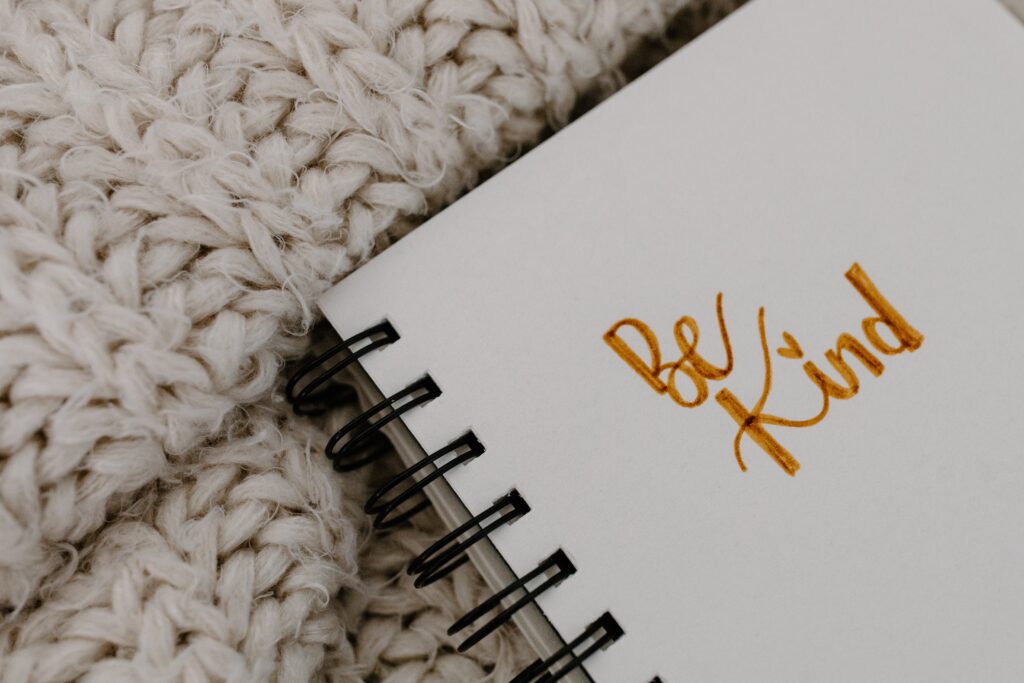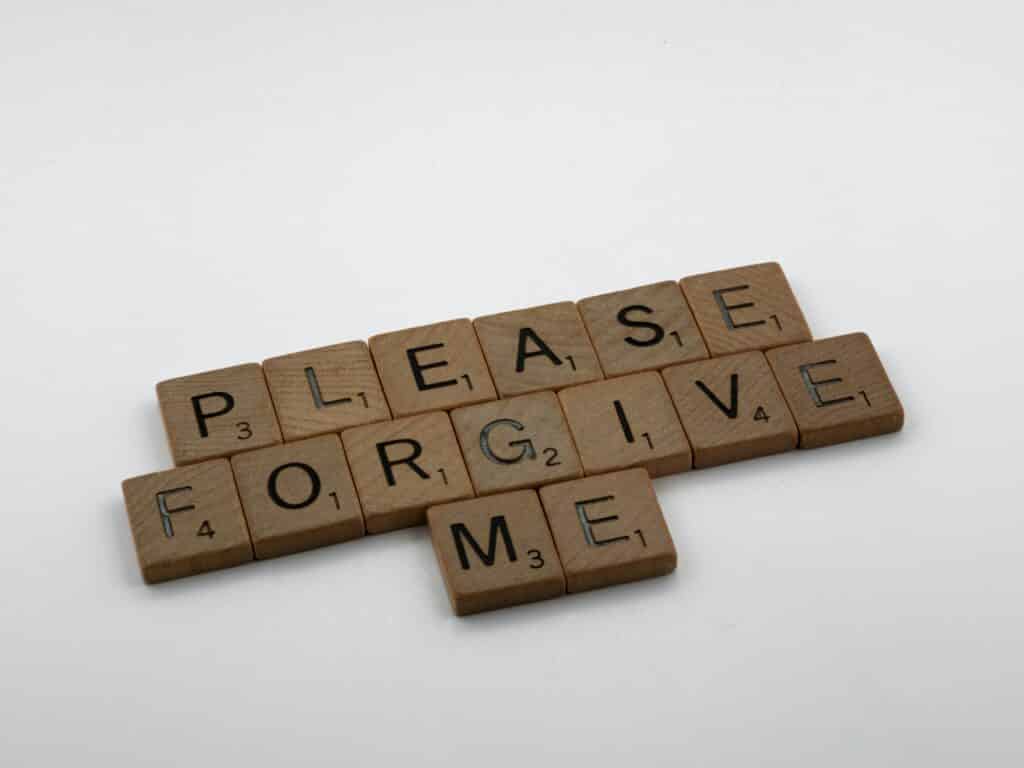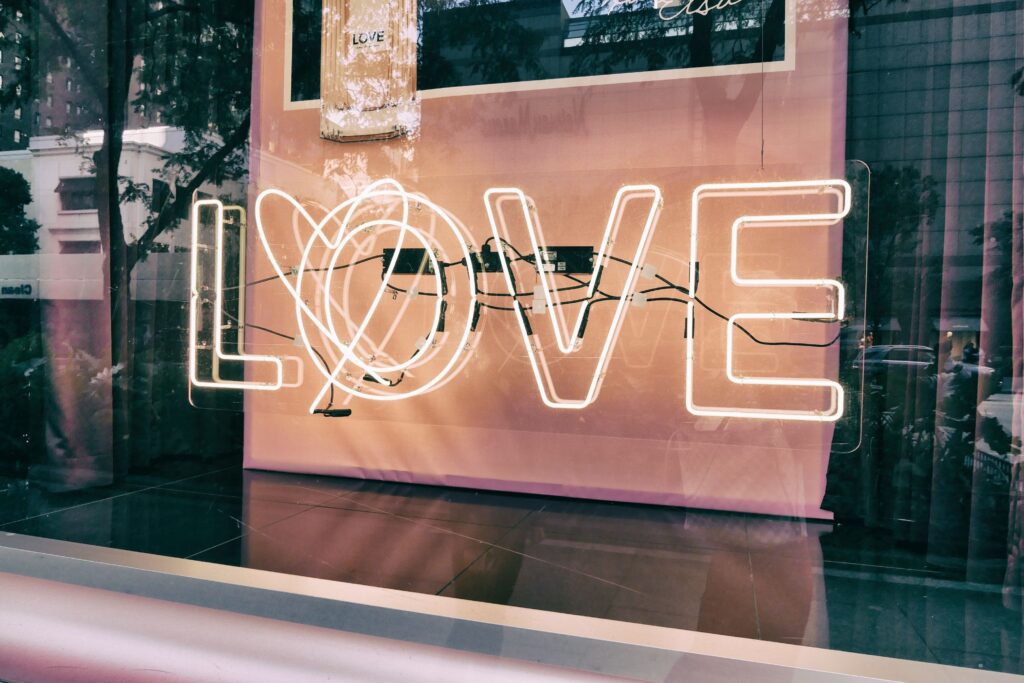50 Healing Affirmations for Forgiveness (Forgiving Yourself and Others)
Do you ever feel like forgiveness comes so difficult, it should be classed as a radical act?
Forgiving others and – more notably – forgiving ourselves doesn’t always come easy. We overthink, overanalyse, and bully ourselves with the memories and repercussions of wrongdoings.
However, forgiveness, while not always straightforward, can be incredibly healing.
Affirmations for forgiveness can help you reach this and move on with your life in a more positive way.
How can I encourage myself to forgive?
Forgiveness doesn’t always come naturally. In fact, a 2001 study showed that out of a survey sample size of 1423 Americans, only 52% had managed to find it in their hearts to forgive others for their wrongdoings.
This is in spite of the fact that another study showed that 62% of Americans believe they need more forgiveness in their lives.
Forgiveness comes in two main forms: forgiveness for other people and forgiveness for ourselves.
While forgiveness for ourselves has been shown to be a little easier than forgiving others – potentially because we’re usually aware of our own intentions – it’s still incredibly important. Forgiving others usually comes a lot easier when you learn self-forgiveness.
Harbouring bitterness towards our own actions can eat us up inside and negatively impact our mental health, our relationships, and our entire approach to life.
Similarly, holding grudges for other people can prevent us from making deeper connections in our relationships and result in trust issues.
Forgiveness doesn’t always come easily – sometimes we have to work at it – and it doesn’t mean that you have to forget any wrongdoing.

If you made a mistake, you can learn from it.
If someone else did something that prevents you from mentally, emotionally and physically being able to move past their wrongdoing and have them in your life, you can still forgive and let the hatred go without having them close to you.
In order to encourage yourself to forgive, you need to work on a few things:
#1. Self-Love
Working on self-love isn’t something I often see people talk about when it comes to forgiveness.
When you have your own back unapologetically, forgiveness comes a lot easier.
You realise that you don’t have to hold onto bitterness and resentment, in fact, it’s a waste of your time and energy to do so!
You don’t take wrongdoings personally because you know what you deserve and have so much self-confidence that you can also take responsibility and learn from your own mistakes.
You understand that forgiveness can be freeing and want the best for yourself.
You also respect your own decisions and trust your intuition.
#2. Shadow Work
A lot of the time, we resent people because they reflect a part of ourselves that we’ve kept hidden: our shadow.
This is why we find it hard to let go of wrongdoings – we unconsciously see ourselves in their mistakes. We project our shadow onto them and view the situation through our own biased lens.
By doing shadow work and healing these buried traits, we can become more secure in our own being and forgiveness will come easier.
#3. Self-Reflection and Empathy
Acknowledge how you truly feel about the situation that you or someone else has brought about with their wrongdoing. Perhaps journal – vent it all out onto the page.
Your feelings are valid.
Then, take a step back and consider the intentions behind the wrongdoing. Were you – or this other person – intentionally doing something wrong, or was it human error?
Was the intention malicious, or a regrettable mistake?
Are they sorry? Have they apologised?
These considerations may factor into whether you allow another person to stay in your life; they’re important to get clear on before making a decision. However, forgiveness can still be reached, even if you don’t want this person around you anymore, and empathy is an important part of this.
I invite you to put yourself in the other person’s shoes. Consider how you would have acted in the same situation and be completely honest with yourself.
Were strong emotions involved?
Have boundaries been previously communicated and/or violated on either side?
Was this person really trying to hurt you, or were they neglecting your feelings entirely?
Truly reflect on yourself and whether you could make this same mistake.

#4. Take responsibility
If you had a part to play in the wrongdoing – especially if you’re the one asking forgiveness of yourself – you must take responsibility in order to let it go and move on.
Situations – particularly large wrongdoings – are rarely completely one-sided or black and white, except in the movies.
People are rarely just bad people being bad; they have motive, such as their own emotions, desires, and goals.
There’s also usually a bit of give and take on boths sides.
If you did have a hand in any wrongdoing, no matter the situations, it’s always a good thing to reflect, apologise sincerely, and learn from it.
Taking responsibility is key and, if you’re the one asking for forgiveness from yourself or others, you’re far more likely to receive it if you own up to what you did wrong and acknowledge it.
#5. Personal Choice
When someone does us wrong, we can often feel as if we’ve lost control of the situation, our relationships, and our emotions.
Using personal choice – CHOOSING to forgive someone or not – helps you take back that control and personal responsibility.
It removes you from the role as the victim, in which the wrongdoing has been done to you, and puts you back in the driver’s seat.
It also might reframe how you view the situation entirely.
Can forgiveness be healing?
Studies have shown that forgiveness can indeed be healing, not just mentally and emotionally, but physically as well.
Forgiveness can:
- Lower your chance of a heat attack
- Improve cholesterol levels
- Improve sleep
- Reduce pain
- Reduce blood pressure
This is on top of reducing the risk of depression, anxiety and stress.
This all makes sense, right?
Stress – and by extension harbouring bitterness, anger, or ill-will – can be toxic for our mental and physical health.
By letting go and forgiving, we can also let go of that stress and all the negative affects it has on our health.
Therefore, forgiveness isn’t just healing for our soul, as we’re letting go of negative emotions and moving on with our life feeling lighter, it’s also healing for our body!

How do you forgive an unforgivable act?
Unfortunately, there are some wrongdoings that can’t be forgiven.
You should never compromise your values, morals, or integrity, and there certain act of betrayal that not everyone is able to forgive.
While a lot of situations can be forgiven in the sense that they’re simply let go and the person is no longer allowed in your life, some wrongdoings don’t even allow for this. Especially if said wrongdoing is fresh and you’re still feeling the ramifications of someone else’s betrayal.
This is where personal choice comes in.
While forgiveness is usually healing, it is absolutely not something you have to do if you don’t feel it would benefit you in any way, or if you simply can’t bring yourself to reach it.
Always respect your own energy and make the decision that’s best for you going forward.
Affirmations for forgiving yourself
Firstly, I want to share some affirmations for forgiving yourself.
This is often easier said than done and we tend to hold our own mistakes over our head, overthink them, and use them to prevent us from growing as a person.
This can have a catastrophic affect on your mental health, mindset, and self-esteem.
Affirmations work really well – I find – if you repeat them out loud, in your head, or in your journal a few times whenever you feel like you need the extra boost.
I personally only concentrate on one positive affirmation at a time, so that I can focus all my energy into it, and not become overwhelmed.
- I am a good person – my intentions are pure
- I forgive myself
- I take responsibility for any hurt or pain that I’ve caused
- I choose to learn from my mistakes; mistakes are life-lessons
- Apologising is a sign of strength
- Everyone makes mistakes, I’m no different
- Mistakes help me grow as a person – they’re an integral part of life
- I choose to stop over-thinking
- I choose to reject negative self-talk
- I am grateful for my mistakes and the person I’m becoming because of them
- I am grateful for the opportunity to learn and grow
- I let go of negative thoughts that don’t serve me
- It’s okay to not be perfect, no one is
- I accept that I am a human being and that’s okay
- I am worthy of forgiveness
- I accept other people’s right to not forgive me; I respect their choice
- I love myself for who I am
- I am worthy of love and respect
- I hold myself accountable for my own shortcomings
- Tomorrow is a new day that I’m excited to start
- I accept myself for all my shortcomings, they make me who I am
- I am at peace with myself
- My past mistakes do not define me
- I choose to live in the present
- I treat myself with compassion and kindness

Affirmations for forgiving others
Forgiving others is a little harder than forgiving ourselves, as we’re never truly certain of other people’s real intentions behind their wrongdoing. We can’t read minds.
We can only take their apology at face value and choose to trust them moving forward.
We also cannot control other people or their actions, and this can leave us feeling helpless.
However, we can take back that control by protecting our own energy and space, and making our own decisions by listening to our intuition.
Forgiving the person who hurt you, while you may not forget what they did, is an empowering act.
- I choose to protect my own energy
- I let go of people who don’t have my best interests at heart
- Empathy is one of my strongest attributes
- Other peoples’ opinions of me are none of my business
- I am in control of who I let into my life
- I set and enforce strong boundaries that enhance my life
- People make mistakes and that’s okay
- I choose to forgive and let go
- Forgiveness helps me heal; it feels good
- I am grateful for those I trust
- I choose to trust those I have in my life
- Other people’s actions are not a reflection of myself
- I am in control of how I react
- I choose to forgive those who have hurt me
- Forgiveness is beautiful
- People are not defined by their past mistakes
- I choose to love unconditionally
- I choose to release my anger, bitterness and resentment
- I embrace the healing process
- I choose to move forward and not stay in the past
- Forgiveness is strength
- I cannot control other people’s actions and I’m at peace with that
- I am compassionate and kind
- I will not hold other people’s mistakes over their head
- Life is too short to hold grudges
The best way to stay consistent with affirmations that I’ve found it is by using affirmation cards.
They help inspire you, as well as remember which affirmation you’re focusing on, which helps transform your confidence and discover self-worth.
Check out my affirmation card club for brand new affirmation cards every single week!

A witchy ray of sunshine who loves to help others on their journal journey. I’ve been journaling since childhood and have since gone on to earn a degree in English and a diploma in Shadow Work. I love my plant babies, yoga, and anything spooky. Find out more on my about me page.